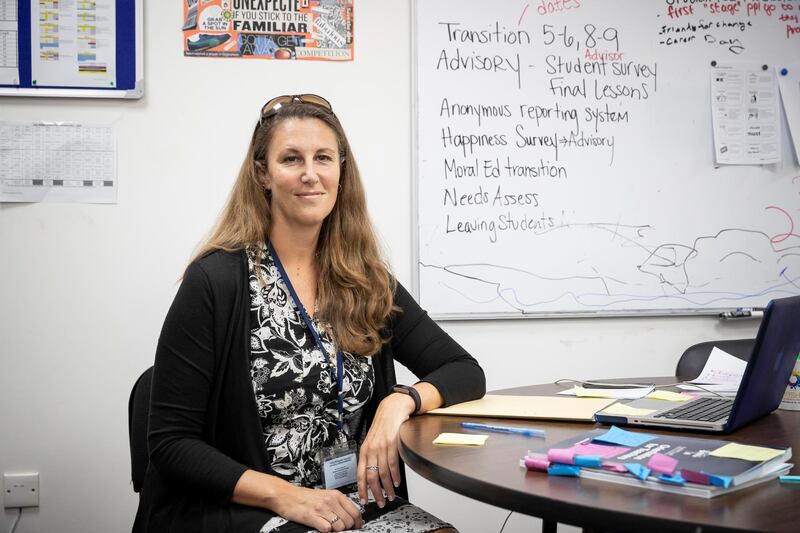A culture of understanding and acceptance needs to be reached to destroy the social stigma attached to depression and anxiety that can prevent vulnerable teenagers from speaking out, school counsellors have said.
In the wake of the apparent suicide of a 16-year-old girl in Al Rawda, school staff have highlighted the importance of communication between children and parents. Some families, they said, deny or cover up suicide attempts due to a fear of how society will react to their sons and daughters.
"No parent wants to find out that their child does not want to live any more and many blame themselves," said Kara Haines, middle school counsellor at Universal American School in Dubai.
She has seen many parents who tried to ignore that their child was having suicidal thoughts or had attempted suicide, but warned that they must "believe what children say and listen to them".
"There needs to be a culture of understanding and acceptance when it comes to depression and anxiety," she said.
Suicide is the second leading cause of death in the 15-to-29 age group, the World Health Organisation said. It is a topic that can be hard for families to talk about and some societies are more open than others to discussing mental health.
David Ipe, school counsellor at Indian High School in Dubai, said the parental response to self-harm or suicide is often determined by family and cultural norms.
“Indian parents don’t like to say anything negative about themselves or their child,” he said.
"The parents won’t publicise depression and that is the way Indian culture is — suicidal thoughts and attempts have a social stigma attached. Children need to get married and if this is made public it will be a taboo so no Indian parent will think of doing this.”
________________
Read more:
Labourers suffering mental health issues in silence, Pakistan Association of Dubai says
[ UAE pupils warned over trend of videoing bad school behaviour ]
________________
Rachel Johnson, secondary guidance and support counsellor at Uptown School in Dubai, has suspected children under her responsibility have harmed themselves many times. But when asked, families say it was an accident.
“I have seen instances where children don’t admit that they have tried to take their life,” Ms Johnson said. “Parents and families try to cover it up and do not let the school know.
“They do not even let anyone around them know that it was a suicide attempt. They say, for example, it was an accident where a door slammed on a child’s arm.”
She said that a because a teenager’s pre-frontal cortex was not yet fully developed, their decision-making is affected.
“We have to connect with youth at their level instead of treating them like adults,” Ms Johnson said.
But Carolyn Yaffe, a cognitive behavioural therapist at Camali Clinic in Dubai, felt positive that teachers were recognising the warning signs of depression and were involving counsellors.
“What’s really important is that teenagers and children have a support system,” Ms Yaffe said. “Parents have to make themselves available for children when they are having difficulties, social or academic.
"Teachers need to be educated [to identify] the signs that a pupil in their class is struggling."
A 2013 study by a registrar of community medicine at Dubai Health Authority found that from a test group of 1,289 pupils aged between 14 and 18 from 20 Dubai schools, nearly one in five showed elevated symptoms of depression.
Anam Rizvi







